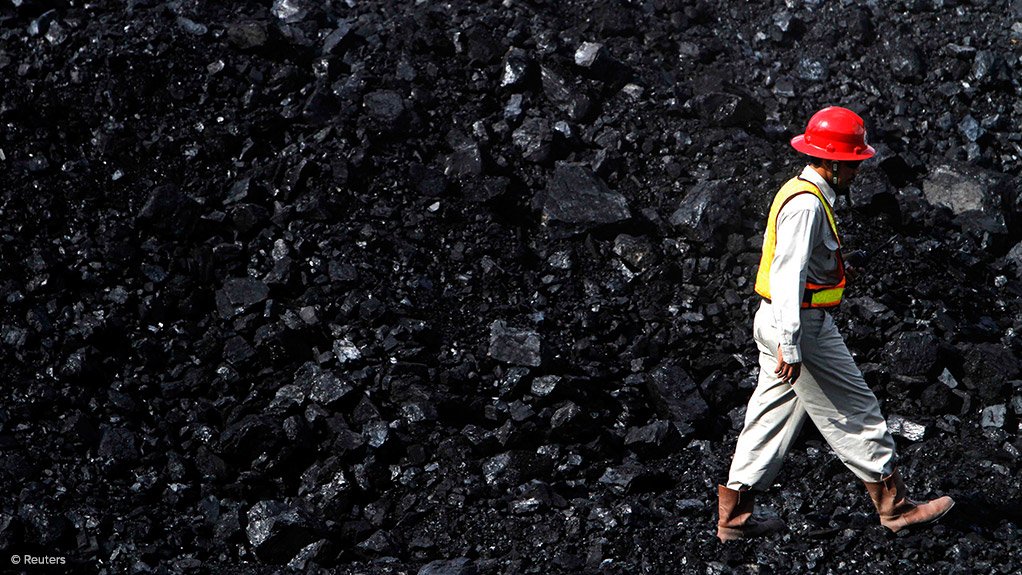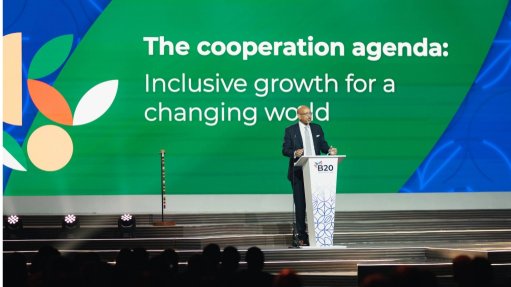1.25m coal jobs could be lost globally by 2035, report says
Research firm McKinsey’s inaugural ‘Global Materials Perspective’ report shows that, while the green energy transition could generate 340 000 global jobs to scale critical minerals and metals supply by 2035, 1.25-milion jobs may be at risk, driven by the associated decrease in thermal coal demand.
The report, which was published on September 17, focuses on the new phase of the energy transition where costs, complexity, challenges and trade-offs are beginning to play out, showing the intertwined dynamic between the energy transition and materials, highlighting how it is creating adaptive challenges for the industry.
This is demonstrated by the growing share of global market production increasingly shifting toward energy transition materials, such as copper, lithium and nickel.
The report shows that the highest level of global market production growth is expected from copper at 30% and lithium at 475% by 2035.
The ‘Global Materials Perspective’ analysis highlights that, overall, the mining and metals sectors are currently in a strong financial position, having achieved strong growth in profitability in recent years.
However, it notes that maintaining a strong financial position will be required to scale up the metals and mining industry to support the energy transition, with analysis based on insights from McKinsey’s Metal and Mine Spans, estimating that as much as $5.4-trillion in global capital expenditure and 270 GW of power will be needed, with another 1 100 GW required to decarbonise, to meet demand by 2035.
The ‘Global Materials Perspective’ report provides a companion viewpoint to McKinsey’s simultaneously published 2024 Global Energy Perspective, which reveals that the supply of critical metals, including lithium and nickel, is scaling up more quickly than expected.
McKinsey says demand patterns are shifting towards alternative technologies and materials in anticipation of potential supply gaps, which is closing the expected supply-demand gaps.
However, the analysis shows that there are still expected shortages for several critical materials used in the large-scale deployment of low-carbon technologies. This includes an expected 30% to 40% shortage of lithium and rare earth elements, and a 10% to 20% shortage of iridium and copper.
“The size and shape of the metals and mining value pool are continuously changing as the energy transition progresses. Closing the supply-demand gap for critical commodities will be essential to the economic deployment of low-carbon technologies and accelerating the transition,” McKinsey associate partner Michel Foucart said.
The ‘Global Materials Perspective’ shows that the pace of decarbonisation in the industry is unfolding slower than required to support the goals of the Paris Agreement and that the cost of deep decarbonisation remains high, with an increase of more than 30% in operational costs for some materials, especially for brown-to-green transitions.
This is particularly challenging as underscored by the analysis of McKinsey’s recent survey of leading industry players across steel, aluminium and copper, which demonstrated that only 15% of customers surveyed indicated a willingness to pay for premiums of about 10% for green materials by 2030.
“According to our analysis, there is currently sufficient financing capacity in the industry to scale up production, with $5.9-trillion in financing capacity available. However, the business case is not always attractive enough to incentivise investment.”
“Based on the current pipeline, for example, our research indicates that copper prices would have to increase [by 20%] to about $12 000/t, lithium [by 30%] to $19 000/t and nickel [by 5%] to $21 000/t to incentivise more supply to come online,” McKinsey senior partner Michel van Hoey said.
The report also discusses the challenges ahead for the materials industry in balancing continued supply-demand dynamics and its own decarbonisation pressures.
However, despite those challenges, McKinsey says the industry has an opportunity to bridge the gap and is well-positioned to play a pivotal role in supporting the energy transition.
Article Enquiry
Email Article
Save Article
Feedback
To advertise email advertising@creamermedia.co.za or click here
Comments
Announcements
What's On
Subscribe to improve your user experience...
Option 1 (equivalent of R125 a month):
Receive a weekly copy of Creamer Media's Engineering News & Mining Weekly magazine
(print copy for those in South Africa and e-magazine for those outside of South Africa)
Receive daily email newsletters
Access to full search results
Access archive of magazine back copies
Access to Projects in Progress
Access to ONE Research Report of your choice in PDF format
Option 2 (equivalent of R375 a month):
All benefits from Option 1
PLUS
Access to Creamer Media's Research Channel Africa for ALL Research Reports, in PDF format, on various industrial and mining sectors
including Electricity; Water; Energy Transition; Hydrogen; Roads, Rail and Ports; Coal; Gold; Platinum; Battery Metals; etc.
Already a subscriber?
Forgotten your password?
Receive weekly copy of Creamer Media's Engineering News & Mining Weekly magazine (print copy for those in South Africa and e-magazine for those outside of South Africa)
➕
Recieve daily email newsletters
➕
Access to full search results
➕
Access archive of magazine back copies
➕
Access to Projects in Progress
➕
Access to ONE Research Report of your choice in PDF format
RESEARCH CHANNEL AFRICA
R4500 (equivalent of R375 a month)
SUBSCRIBEAll benefits from Option 1
➕
Access to Creamer Media's Research Channel Africa for ALL Research Reports on various industrial and mining sectors, in PDF format, including on:
Electricity
➕
Water
➕
Energy Transition
➕
Hydrogen
➕
Roads, Rail and Ports
➕
Coal
➕
Gold
➕
Platinum
➕
Battery Metals
➕
etc.
Receive all benefits from Option 1 or Option 2 delivered to numerous people at your company
➕
Multiple User names and Passwords for simultaneous log-ins
➕
Intranet integration access to all in your organisation





















